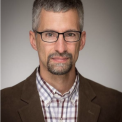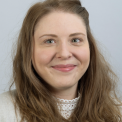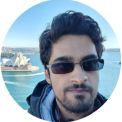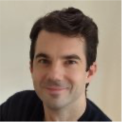The predictions of light element abundances in standard Big Bang Nucleosynthesis agree very well with astrophysical probes of primordial material, with the exception of lithium. Most of the observational constraints we have on the primordial abundance and cosmic evolution of Li comes by way of the Li abundance in stellar atmospheres, which are four times lower than BBN predictions in the Planck era. A broad range of potential solutions to this "lithium problem" have been suggested, from stellar astrophysics solutions (depletion of the surface Li abundances in stars) to physics beyond the Standard Model (annihilating or decaying dark matter in the epoch of BBN). We have adopted a new approach to this problem, using observations of Li in interstellar gas of low-metallicity galaxies to probe the cosmic evolution of Li. I will summarize our results using this approach, including new estimates of the 7Li/6Li ratio that show no evidence for non-standard model approaches.
Events Calendar View
-
Departmental Colloquium
May 5, 2022
A New Approach to the Cosmic Lithium Problem
-
Departmental Colloquium
Jul 21, 2022
Connecting Hydrodynamic Simulations of Planet Formation with Observations
Planets born in circumstellar disks create various disk substructures, such as gaps, rings, spirals, vortices. Similar structures are observed widely with ALMA, SPHERE and similar instruments. At least some of these disk features are likely due to forming planets, however there are also other mechanisms to explain them.
Carrying out high resolution, 3D hydrodynamic simulations with radiative transfer already included, allow us to create realistic “mock observations” or “synthetic images” for a given instrument & telescope combination. These mock observations can be compared with already existing real data, or prepare for future observational proposals. We use them to understand how massive forming planets could be observed with the different instruments, how the planet- disk interactions look like on various wavelengths and what planet-generated features we can observe with the current & near-future instrumentation. I review our findings for near- and mid- infrared, sub-millimeter and radio wavelengths, and identify what are the best wavelengths and instruments for hunting for forming planets.
-
Departmental Colloquium
Aug 17, 2022
Gravitational Instabilities in Protoplanetary Discs: A Vanishing Act
In their youth, protoplanetary discs are expected to be massive and self-gravitating, which results in non-axisymmetric spiral structures. However recent observations of young protoplanetary discs with ALMA have revealed that discs with large-scale spiral structure are rarely observed in the midplane. Instead, axisymmetric discs with some also having ring & gap structures are more commonly observed. In the first part of the talk I will present our results of planet-disc interactions in gravitationally unstable (GI) discs. In the second half I will show our recent results of warped GI discs. Consideration of complex processes such as these has important implications on observations of protoplanetary as it shows how evolution of GI discs can be altered, potentially resolving the discrepancy between theory and observations.
-
CSP Lunch Seminar
Aug 30, 2022
CSP Computing Resources
-
Departmental Colloquium
Sep 1, 2022
Random Language Model
Many complex generative systems use languages to create structured objects. We consider a model of random languages, defined by weighted context-free grammars. As the distribution of grammar weights broadens, a transition is found from a random phase, in which sentences are indistinguishable from noise, to an organized phase in which nontrivial information is carried. This marks the emergence of deep structure in the language, and can be understood by a competition between energy and entropy.
Note: no background in linguistics will be assumed.
-
CSP Lunch Seminar
Sep 6, 2022
Compile and Run HPC code on Sapelo2
Page 117 of 121, showing 6 records out of 723 total, starting on record 697, ending on 702





